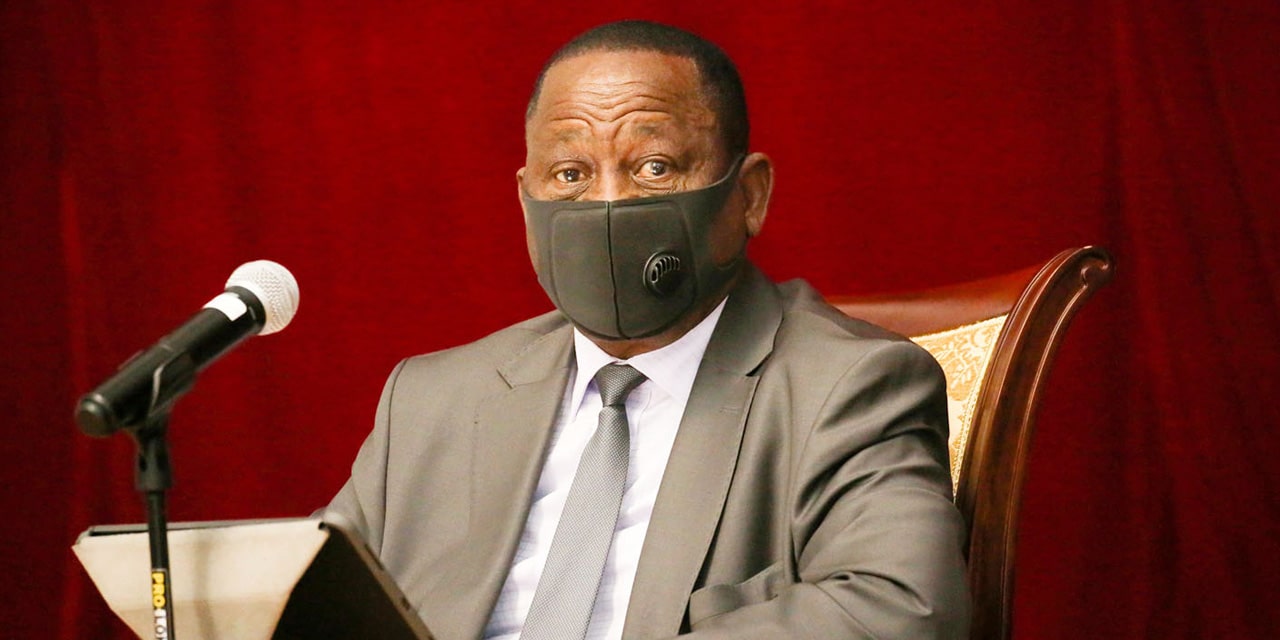Andrew Kathindi
President Hage Geingob has extended the measures to curb the spread of COVID-19 in the country for another 16 days until 31 July.
With Minister of Health and Social Services, Kalumbi Shangula, confirming that the Third Wave in Namibia now having peaked, hence its ravaging effect in the country the last two months. According Shangula the stabilising of the COVID-19 curve has been due to the restriction of movement between regions that was imposed at the end of June. “It is not possible to judge the effects of the measures of COVID-19 within two weeks. Since the introduction of the zones, they have been useful as we have now reached the peak. It has stabilised.”
Shangula adds that since the zoning of the regions, Namibia’s COVID-19 situation has remained high, although still alarmingly high. “For the entire duration of the country-wide restriction of movement, the daily new infections remained high above the one thousand mark. The number of deaths has correspondingly remained above 20 deaths per day, peaking at 150 deaths announced on the 13 July 2021. The pressure on the hospital beds and oxygen supply has remained sustained at high levels.”
The 13 regions were on 31 June divided into 10 zones between which movement has since been restricted to limit the spread of the virus. Namibia has recorded 18,148 cases since 30 June when the amendments to the COVID-19 regulations went into effect. The country has also recorded 714 deaths in that period.
Under the extended measures, the curfew, which has been in place from 21h00 to 04h00, continues while the maximum number of people allowed for public gatherings will remains at 10 people. Similarly, the sale of liquor remains permitted only from 09h00 to 18h00 from Monday to Thursdays. Shangula adds that 250 000 doses of Sinopharm are to arrive on Saturday, 17 July, and vaccination will resume on Monday , 19 July, countrywide. These vaccines were bought from China by Government.
The Health Ministry this week announced the depletion of vaccines at a number of vaccination sites across the country with Oshakati, Rehoboth and Windhoek completely out of vaccination stocks.
“We expect delivery of 40 800 doses of AstraZeneca from Covax Facility as from next week. The exact date of arrival of the vaccines has not been communicated yet.”
Meanwhile, Geingob says the expected delay in imports and impact that could be felt on Namibia’s economic due to the riots and looting in South Africa, should be taken as an opportunity for local producers.
“It has been said that great challenges present opportunity for growth. Anticipated disruptions to the supply chains of essential goods and services in the Republic of South Africa, may present an opportunity to bolster our domestic capacity,” Geingob says.
The lootings have been blamed on supporters of former president Jacob Zuma taking to the streets following his incarceration for 15 months for contempt of court last week.
“Accelerated efforts are underway to, among others, increase local oxygen generating capacity through an investment by the GIPF (Government Institutions Pension Fund) and to fast-track the manufacturing of coffins locally, through the Ministry of Industrialisation, Trade and SME Development and the National Planning Commission. Such renewed investments should remain viable beyond this particular crisis, thereby creating new opportunities for our young people,” said Geingob.
Namibia has thus far recorded 109,356 COVID-19 cases and 2,270 deaths.




